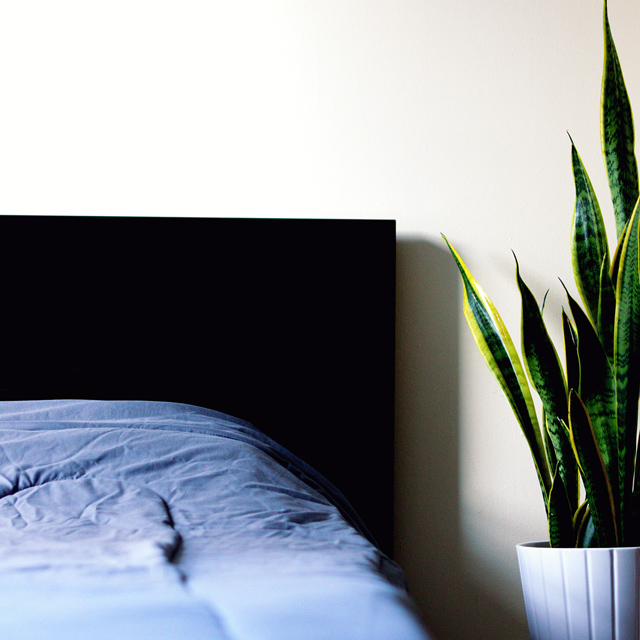An estimated 160 million Americans have trouble either falling or staying asleep at least once per week, and nearly 30 percent of those struggle with sleep on a nightly basis.

We are collectively sleep-deprived, over-caffeinated, and hyper-stimulated, and it’s slowly killing us. And trust me, marketers are taking notice. Just in the last few years alone, the sleep industry, with its fancy mattresses, sleep laboratories, and medications, has broken over $7 billion in value, and it’s expected to trend upwards of $10 billion by the year 2020.
If you were to do an online search of things to help you sleep at night, you’d be bombarded with millions of hits. Advertisements for fancy phone apps, prescription sleep aids, and other bedroom gizmos would flood your page. And while a lot of these things may help, it’s not unusual to feel overwhelmed by all the choices. Sleep should be something natural and easy, right? So why are so many of us clamoring for some decent shut-eye?
The truth is, our bodies and our worlds are complex. Our diets are lacking, our environments are polluted, and our brains are taxed by our fondness for indoor, sedentary time and addiction to electronics.
However, that does not mean that we have no power or control over our health: quite the contrary! Getting refreshing, repairing sleep, even while living a “modern” lifestyle is not a pipe dream, and it doesn’t have to be complicated.
How to Simplify Your Sleep
With just a few simple changes and a dedication to your self-care, you can finally enjoy the restful nights that you deserve. These five easy tips can help re-train your mind and body to slip effortlessly into peaceful slumber:
1. Cut down on the caffeine.
Before you clutch your latte in fear, hear me out. Caffeine, while a great legal stimulant and boon to productivity, is also a powerful dehydrator and nervous system irritant. While up to 90% of the world uses some form of caffeine every day, when it comes to sleep quality, it’s important to take a mindful approach.
Caffeine’s half-life is approximately 5 hours, meaning that out of the 100mg you downed at 8am, 50mg is still floating around at 1pm, and you’ve probably got 10-20mg in your system come bedtime. Learn to cut yourself off by noon, or try mixing in some decaf until your body adjusts. For extra simplicity points, think about all the money you’ll be saving when you’re buying fewer $6 drinks.
2. Take a time-out.
Most of us tackle dozens of tasks each and every day, never stopping to eat a real meal, much less enjoy the silence. But this insistence on go-go-go may be hurting our ability to sleep at night. Once our brains get wired up, it takes a while for them to come back down, especially since this kind of “productivity stress” excites our fight-or-flight hormones.
Taking regular breaks throughout the day is best, but even just one longer time-out session in the evening hours may help transition your mind and body into a restful state. 30 minutes of blissful silence, whether you’re meditating, watching the sunset, or writing in your journal, can pave the way towards deeper zzz’s.
3. Unplug.
I know you’ve probably heard this before, but that’s because it’s true: the blue light emitted from electronic devices halts the release of melatonin in your brain, making it harder to fall asleep. If you’re sitting in bed, scrolling through social media on your phone or tablet, you’re sending the signal to your body to stay awake and alert.
Besides the biochemical changes that come from electronics, you’re more likely to be emotionally keyed up after consuming some kind of media as well. Reading Facebook feeds, answering emails, watching TV shows…these can all affect our ability to let go and wind down at the end of the day. For the best sleep, power down your electronics 2 hours before bedtime.
4. Make a cave.
Did you know that your skin contains tiny sensory cells that pick up on light and vibration in your environment? This is one of the reasons why sleep masks don’t cut it for many people. Our bodies evolved to sleep when we experience three things: a drop in temperature, a reduction in light (more specifically, light moving towards the warm end of the spectrum), and a shift in soundscape. Do yourself a favor and make your bedroom as cave-like as possible at night. Cover the windows, turn down the thermostat (and/or sleep in the buff), and unplug all the beeping and flashing devices before getting under the covers.
5. Go herbal.
Sometimes, especially with particularly stubborn insomnia, we need a little help, and that’s okay. Whenever possible, stay away from prescription hypnotics and reach for natural remedies instead. These are less likely to create dependency, and some work even better than the conventional methods! Look for natural biocompounds like melatonin, GABA, L-theanine, or magnesium, and consider using herbs like valerian, hops, passionflower, chamomile, ashwagandha, lavender, and lemon balm. Do your research first, especially if you’re taking Rx medication, or consult with a qualified herbalist.
Simplifying your life shouldn’t stop after decluttering your closets. Apply some easy, time-tested wisdom to your sleep routine too! Many of my clients have suffered from insomnia for years, and have tried dozens of expensive and complicated therapies, only to find that a few simple changes was all it took to finally get some good shut-eye.
When we get quality rest, our bodies and minds can repair themselves, giving us the energy and clarity to live our waking hours with mindfulness and intention. And that sounds like a pretty solid investment to me!